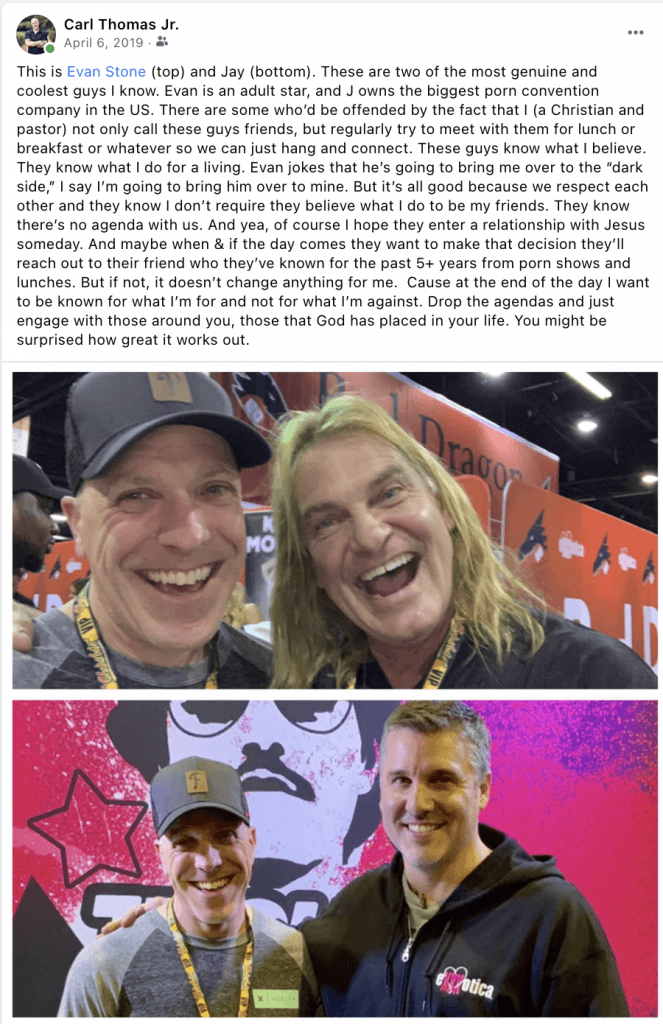A few weeks ago I wrote a blog post titled “The Dangers of Anti-Porn Culture.” You can read that here if you want.
My post was in part a response to the unfortunate Atlanta massage parlor shootings and I’ll be honest…
I knew we’d catch some pushback for the title of the post but that’s ok since the point of these articles is to stimulate thoughtful discussion and dialogue.
Unfortunately some people posted reactionary comments that clearly reflected the fact they never even read past the headline. 🤷🏻
I wasn’t surprised by this either since I see this type of thing happen on social media all the time…long and lengthy (sometimes hateful) posts that are created in response to a three or four-word blog post or news article title.
But, thankfully there were many others who expressed a real desire to engage in some healthy conversations and posted very thoughtful questions such as…
What is so problematic about being “anti-porn” if we also recognize that the real issue is our heart?
By saying you aren’t anti-porn while helping people to stay away from porn, aren’t you kinda playing both sides of the fence?
Isn’t porn bad? What’s wrong with just saying that?
In other words, if we don’t blame porn for our behavior, why can’t we also call out porn as evil, destructive and the like and cling to an anti-porn agenda?
And to be honest, I totally get the thought process here.
So, let me be clear… by saying that the “anti-porn” agenda is problematic I’m not also saying it’s necessarily wrong. One doesn’t equate to the other.
But what I am saying is that a hard “anti-porn” message does create some unintended consequences that are difficult to deny or avoid.
Such as crushing shame.
Right or wrong, the truth is when we completely demonize a behavior or industry we unintentionally send the message that those engaging in these things are to be demonized as well and rather than inviting those involved into a healthy dialogue, we shut down the dialogue all together.
Why?
Because, when I hear you say “I’m against this” I also hear “I’m against you.”
The thought process goes something like this…
- If porn and the porn industry is evil, demonic and disgusting…
- And I look at (or am involved) in this [evil, demonic, disgusting] stuff…
- Then I must be evil, demonic, and disgusting as well.
The reality is, when one engages in behavior that is seen as vial or terribly wrong vs. just simply unhealthy, then the collateral shame they feel is thick and will keep them from opening up about this stuff or seeking help in order to avoid public disgrace.
And when we as a society or church rather choose to keep ringing the same ol’ “This is really bad” bell without the willingness to talk about these things in the open we further affirm the shameful nature of those behavior choices.
This is why I say, I never want to be known for what I’m against but rather what I’m for.
It’s not a way to play both sides.
It’s not a clever out.
It’s not affirming the behavior in question.
It’s just a way of saying… “Hey, this stuff is not healthy for you or anyone, but rather than focusing on that reality – I rather focus on my love for you and what you could be doing that’s so much better and healthier than what you are doing right now.”
This is the message I try to communicate to someone whether they are in the porn industry or just a consumer of the industry.

Because I want to…
Welcome conversations for help.
Communicate grace vs. judgment.
Build bridges and not burn them.
The reality is that hate never changes anything or anyone, and it won’t change the heart. Only love can do that.
At the end of the day, if we focus our attention on what’s good, pure, and healthy rather than just what’s “wrong” and “bad” we create environments where people will 1) feel loved and more at ease to talk about their struggles or questions without shame, and 2) be more likely to reach out for help.


